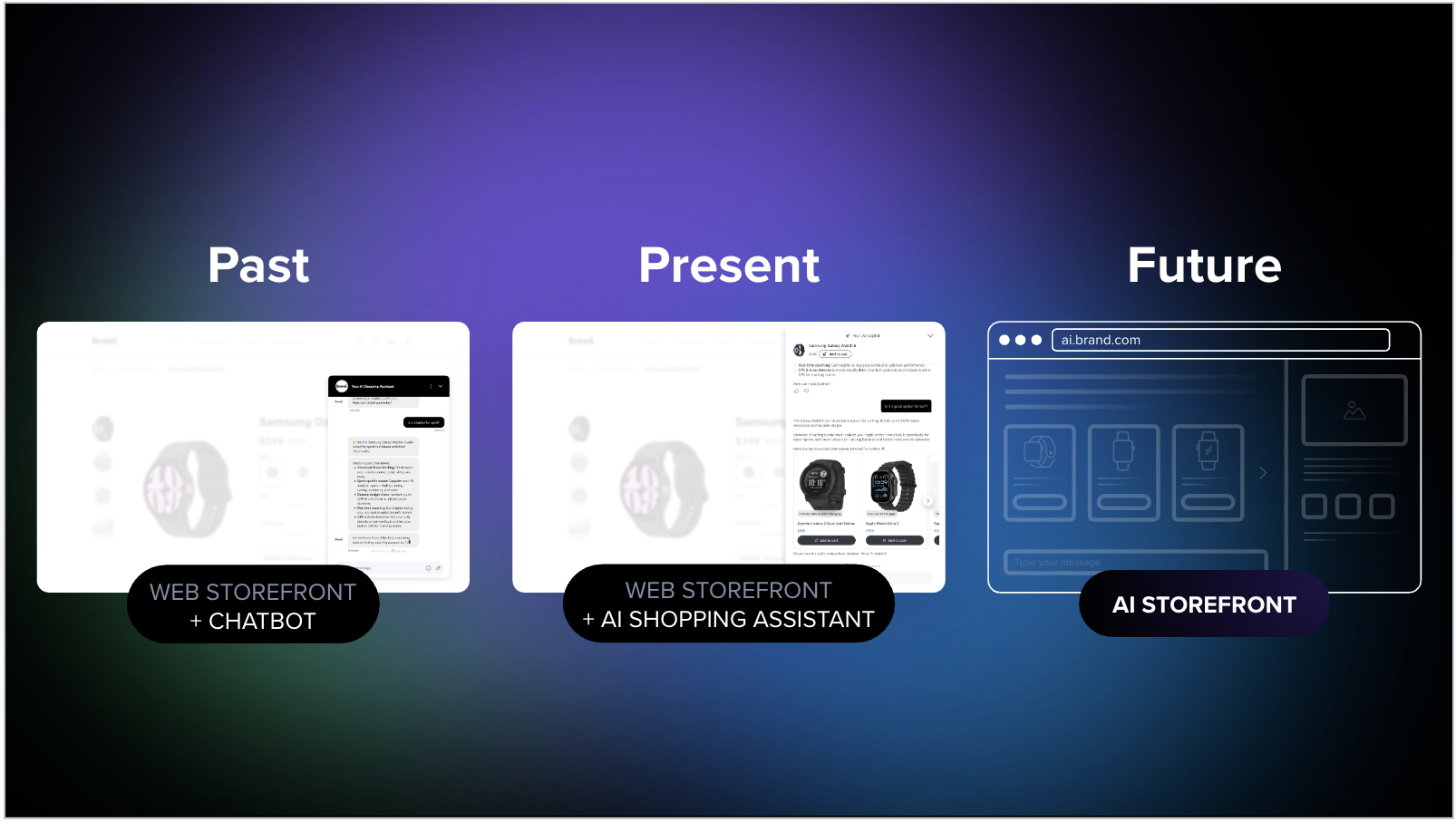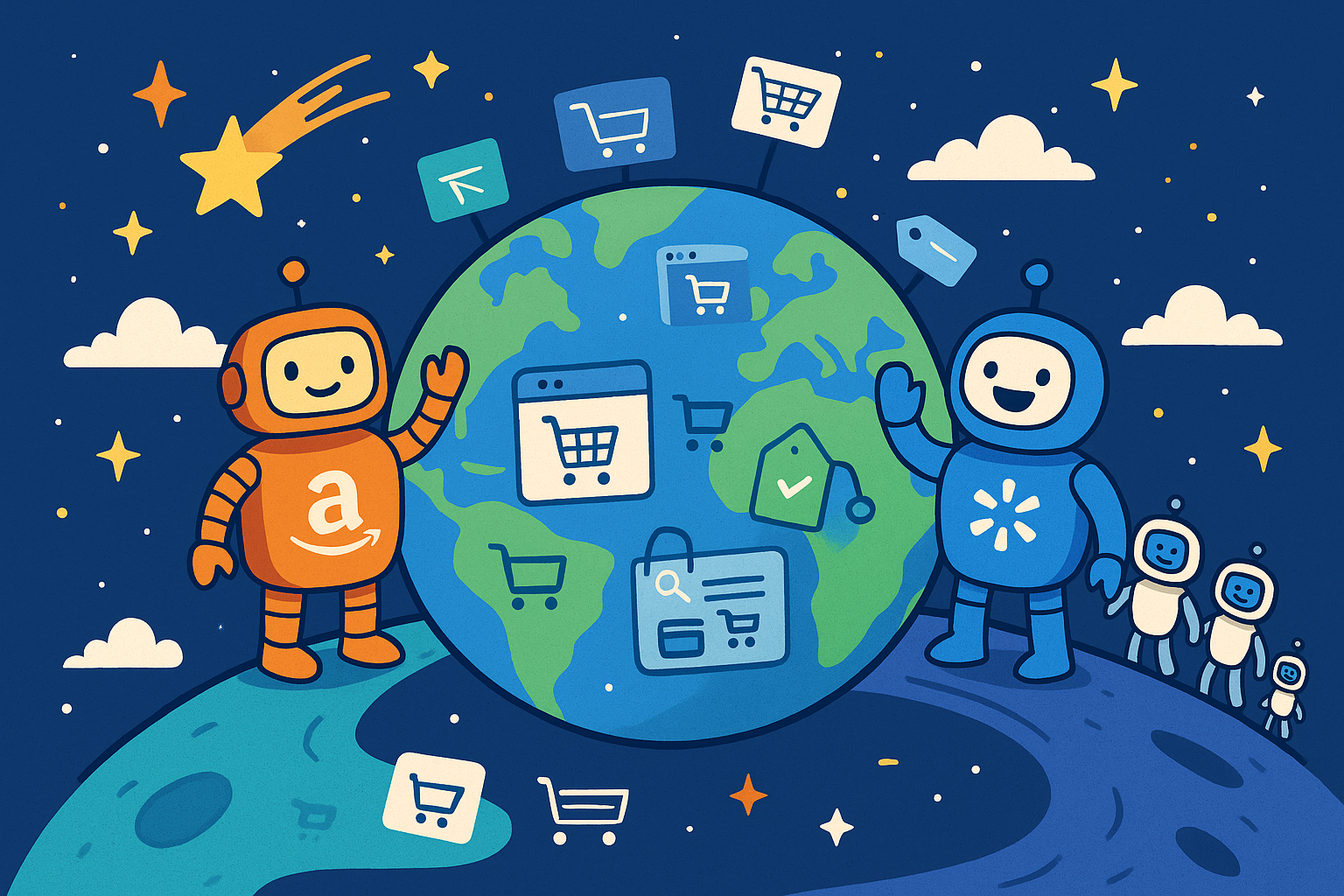How Generative AI Copilots Will Fix The E-commerce Buyer Journey
Mike de la Cruz, President and Chief Strategy Officer, iAdvize

Picture this: you're browsing an online store, eager to buy the perfect product. As you click through endless pages of options, you start to feel overwhelmed. You read through all the product details and several help articles, and you still have questions. You start thinking that this is a waste of time. Discouraged, you abandon the site and leave empty-handed. Sound familiar? You're not alone.
On average, a staggering 97% of online shoppers leave e-commerce websites without making a purchase. Despite being just a few clicks away from buying, why do only 3% of shoppers follow through on an order? What's going wrong?
The One-Size-Fits-All Approach is Failing Shoppers
Brands invest $600 billion per year in online advertising to bring shoppers to their sites, yet they lose the majority of those buyers. The main culprit behind this low success rate is the one-size-fits-all approach of the e-commerce website. It’s optimized for the happy path—where each shopper finds the right product, reads the detail page to confirm their decision, and makes a purchase.
The reality is that the shopping experience is different for each individual, and each buyer has specific needs at different points in their process. For every stage of the customer journey—discovery, consideration, purchase, and post-purchase—shoppers face unique challenges that lead to "leakage" during the purchase process and poor conversion rates.
Choice Overload in Product Discovery
The problems begin at the discovery stage. 70% of shoppers go straight to the search bar when looking for products. However, an ever-growing range of products and options on e-commerce sites makes finding the right fit without help a daunting task. Consumers can easily get trapped in an endless cycle of searching, filtering, scrolling, and searching again that ends with 80% of them abandoning their search altogether.
Information Overload during Consideration
Even when shoppers find the right products, they're often met with an overwhelming amount of information. Product details, sizing guidelines, shipping costs—it's all there, but it's not easily navigable. As a result, only half of online shoppers find the information they need to move forward with their purchase.
Roadblocks in the Path to Purchase
Online buying experiences are often cluttered with too many steps, leading to frustration and lost sales. A convoluted checkout process can be a significant factor in why shoppers abandon their carts. Additionally, unexpected costs, like shipping fees and other extra charges, further discourage potential buyers. A consumer study by Ipsos reveals that these hidden costs are among the top reasons consumers decide not to complete their purchases.
Frustration After Purchase
When issues arise post-purchase, shoppers seek help from customer service. But, they’re often met with FAQ articles and FAQ chatbots that cannot answer their specific questions. Many bypass these automated solutions in search of more personalized assistance, but human agents have limited capacity to provide timely, detailed responses to every inquiry.
Generative AI’s Role in E-commerce Conversion
We work with 350 e-commerce businesses to simplify their online shopping journeys, and have found that:
- 50% of e-commerce shoppers need some form of assistance before they buy.
- When companies successfully provide this assistance, they 10x their conversion rate.
- Before generative AI, e-commerce companies were only able to provide this assistance to a small percentage of their shoppers. Customer service agents are expensive and often aren’t experts in every product, while previous-generation chatbots are too expensive to train beyond a set of frequently asked questions.
Enter generative AI—a revolutionary technology that makes it possible to instantly assist any shopper with every question they have throughout the buyer journey and increase their success and conversion rates. Since this technology burst onto the scene, we've collaborated with hundreds of e-commerce brands to reimagine their online customer journey with generative AI-backed copilots that create personalized one-to-one user experiences.
Reinventing the E-commerce Chatbot
The first wave of innovation involved reinventing the e-commerce chatbot into an effective shopping assistant. Rather than limit AI to common questions, brands have deployed AI copilots to assist with the entire buyer journey. Today’s AI shopping assistants are experts in the entire product catalog and the retailer’s processes and policies.
The results speak for themselves:
- Pop-culture collectible manufacturer, Sideshow, 5x their conversion rate with the addition of an AI Copilot to advise shoppers on their product pages.
- Eyeglasses retailer, Payne Glasses, achieved a 23% CVR for fully automated conversations, 10 times higher than their original rate.
As leading eyewear retailer, Payne Glasses’, Customer Experience Lead, Katie Himes, states: "I don't want to be dramatic and say it's a savior to us, but it's improved conversion, saved so much manpower, and given our customer service a break to focus on other things."
Reinventing the E-commerce Website
The second wave of innovation involves reinventing the website experience. AI copilots are becoming more proactive, anticipating what online shoppers might need and prompting them to start a conversation before the first interaction. This gives shoppers an easy way to explore products on a website, ask questions, and receive personalized advice and recommendations.
The Future of E-commerce is Powered by Generative AI
In the next two to three years, we believe each site visitor will have a personal generative AI shopping assistant that will:
- Bring e-commerce conversion rates from 2-3% to 20-30%.
- Replace the search bar as the primary product discovery channel.
- Increase shopper engagement by 5-10x on every page of the site.
We’ve now reached the point where artificial intelligence can guide each shopper through a personal shopping experience and improve every stage of the buying journey. While there's still much to learn, it's evident that a new era of e-commerce is unfolding—one that leverages precise, personalized assistance at scale, all powered by generative AI.

.png)
.png)




